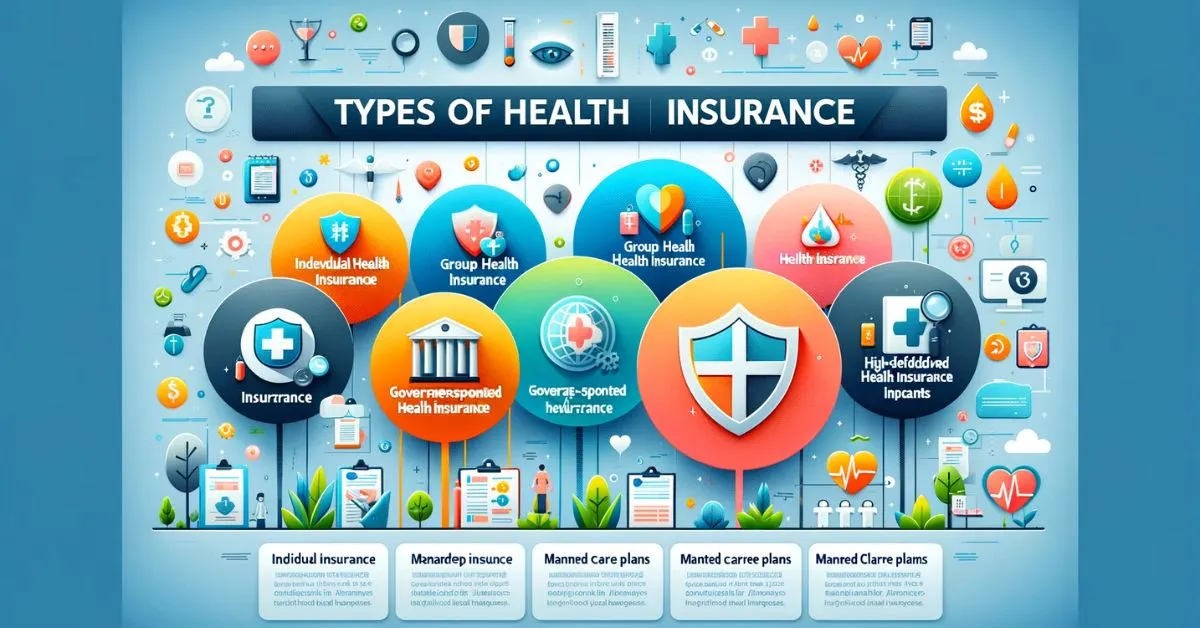Hello, I’m Alia! Today, let’s solve the complexities of health insurance—a crucial shield in our quest for well-being and stability. As we navigate through life’s unexpected avenues, having health insurance isn’t just about handling crises; it’s about empowering oneself with the freedom to prioritize health without the looming dread of financial strain.
Join me as we study what health insurance means, its undeniable benefits, and the diverse types that cater to different needs and lifestyles. From individual plans tailored for solo adventurers to extensive group schemes nurturing entire communities, this article is your gateway to making informed, confident decisions about your healthcare coverage.
Stay tuned as we decode how to select the perfect plan, manage costs effectively, and ultimately, secure your peace of mind. Welcome to a world where caring for your health becomes worry-free, with the right health insurance in your arsenal.
In today’s fast-paced world, where tensions loom at every corner, health insurance appears not just as a financial security but as a necessity for securing peace of mind and access to quality healthcare.
Health insurance is a type of insurance coverage that typically pays for an insured individual’s medical and surgical expenses. It can refund the insured for expenses incurred from illness or injury or pay the care provider directly. This complete article, which examines the meaning, benefits, and types of health insurance, offers insights to help individuals make informed decisions about their healthcare coverage.
Meaning of Health Insurance

Health insurance is a contractual agreement between an individual and an insurance company. This agreement requires the insurer to cover some or all of the individual’s medical expenses in exchange for a premium often paid monthly, quarterly, or annually.
The scope of coverage can vary widely, covering anything from routine check-ups and prescriptions to more significant procedures such as surgeries and long-term hospital stays.
Also Read Best Diet for Weight Loss Over 40
Why do I Have A Health Insurance Policy?
Many of us wait to accept health insurance until we realise its value. Understanding the various benefits of health insurance is vital before purchasing, as medical crises can arise unexpectedly and significantly deplete your finances. It’s suggested that you secure a health insurance policy early in life. Doing so can ensure extensive coverage at a lower premium cost, alongside the extra of receiving tax beliefs for the premiums paid.
In essence, the reasons to invest in a health insurance policy include:
- It enables access to high-quality healthcare without the concern of steep expenses.
- Provides targeted protection against severe illnesses.
- Includes coverage for emergency ambulance services following accidents.
- Features more economical premiums for young adults.
- Allows cashless claims, enabling you to focus on healing rather than financial stress.
- Shields your savings in times of health crises.
- Offers tax advantages under Section 80D of the tax code.
- Ultimately, it ensures your and your family’s well-being and secures your financial reserves.
Benefits of Health Insurance
Financial Security
One of the primary benefits of health insurance is financial security. Medical treatments can be expensive, and unexpected health issues can lead to significant financial strain. Health insurance helps mitigate these costs, ensuring that medical bills do not hinder receiving necessary care.
Access to Quality Healthcare
Health insurance plans often have networks of hospitals and doctors, ensuring insured individuals have access to quality healthcare services. This can include preventive services, such as vaccines and screenings, which can detect health issues early on when they are more manageable.
Peace of Mind
Knowing that you have health insurance provides peace of mind, as it reduces worries about how you will handle unexpected medical expenses. This mental comfort is invaluable, allowing individuals to focus on recovery rather than financial concerns.
Better Health Outcomes
Health insurance encourages individuals to seek medical advice early when they experience health issues, leading to better health outcomes. Early detection and treatment of illnesses can significantly improve prognosis and reduce the overall cost of medical care.
Types of Health Insurance

Individual Health Insurance
Individuals purchase individual health insurance policies to cover only themselves or their families. These customizable plans allow policyholders to choose their coverage level, deductible amounts, and other terms.
Group Health Insurance
Employers or organizations typically offer group health insurance to their employees or members. These plans are generally less expensive than individual insurance, as the risk spreads over many insured individuals.
Government-Sponsored Health Insurance
Many countries have government-sponsored health insurance schemes designed to cover certain groups of people, such as the elderly, low-income individuals, or veterans. Examples include Medicare and Medicaid in the United States.
Managed Care Plans
Managed care plans, such as Health Maintenance Organizations (HMOs) and Preferred Provider Organizations (PPOs), offer a network of healthcare providers the insured must use to receive coverage. These plans focus on preventive healthcare and may require referrals for specialist care.
High-Deductible Health Plans (HDHPs) with Health Savings Accounts (HSAs)

HDHPs are plans with higher deductibles but lower premiums. They are often paired with Health Savings Accounts (HSAs), allowing individuals to save money tax-free for medical expenses.
In conclusion, health insurance is critical to financial and health security. Understanding the different types of health insurance and their benefits enables individuals to select a plan that best suits their needs and budget.
With the right health insurance coverage, individuals can ensure access to quality healthcare, safeguard against financial strain due to medical expenses, and enjoy greater peace of mind.
FAQs on “What Is Health Insurance: Meaning, Benefits & Types”
What is health insurance?
Health insurance is a form of insurance coverage that pays for medical and surgical expenses incurred by the insured. It can operate on a reimbursement basis, where the insured pays out-of-pocket and is later reimbursed, or the insurer can make payments directly to the provider.
Why do I need health insurance?
Health insurance is essential for several reasons. It provides financial protection in case of unexpected medical expenses, ensuring you don’t face financial ruin due to health issues. It also ensures access to quality healthcare services and encourages preventive care, which can lead to early detection and treatment of diseases.
What are the main types of health insurance?
The main types of health insurance include:
- Individual Health Insurance: Policies individuals purchase to cover themselves or their families.
- Group Health Insurance: Offered by employers to their employees, usually at a lower cost.
- Government-sponsored health Insurance: Medicare and Medicaid in the U.S., for specific groups like the elderly or low-income individuals.
- Managed Care Plans: Like HMOs and PPOs, these plans provide a network of healthcare providers to choose from.
- High-Deductible Health Plans with Health Savings Accounts: Plans with higher deductibles but lower premiums, often paired with HSAs for saving for medical expenses.
How do I choose the right health insurance plan?
Choosing the right health insurance plan depends on several factors, including your health needs, budget, preferred healthcare providers, and whether you like the flexibility of choosing any provider or the lower costs associated with using providers within a network. Consider what type of care you need and how often, and then compare plans for their coverage, premiums, deductibles, and out-of-pocket maximums.
What does health insurance cover?
Health insurance coverage varies by plan but generally includes doctor visits, hospital stays, surgeries, prescriptions, preventive care (such as vaccinations and screenings), and sometimes dental and vision care. Always check the specifics of a plan to understand what is covered and what isn’t.
Can I get health insurance if I have a pre-existing condition?
As of the last updates before April 2023, in many countries, including the U.S., insurers cannot deny coverage or charge higher premiums due to pre-existing conditions. However, verifying the current regulations in your country or region is crucial, as policies can vary.
How does a deductible work in health insurance?
A deductible is an amount you must pay out-of-pocket for your healthcare services before your health insurance begins to pay. After you’ve met your deductible, you usually pay only a copayment or coinsurance for covered services, and your insurance covers the rest up to your policy’s limit.
What is a premium in health insurance?
A premium is the amount you pay for your health insurance policy. This can be paid monthly, quarterly, or annually, depending on the terms of your plan. Your premium is separate from your deductible, copayments, and coinsurance.
What’s the difference between an HMO and a PPO?
An HMO (Health Maintenance Organization) requires members to select a primary care physician and get referrals to see specialists. It typically offers lower costs but less flexibility in choosing providers. A PPO (Preferred Provider Organization) provides more flexibility in choosing healthcare providers and doesn’t usually require referrals, but it often comes with higher premiums.


